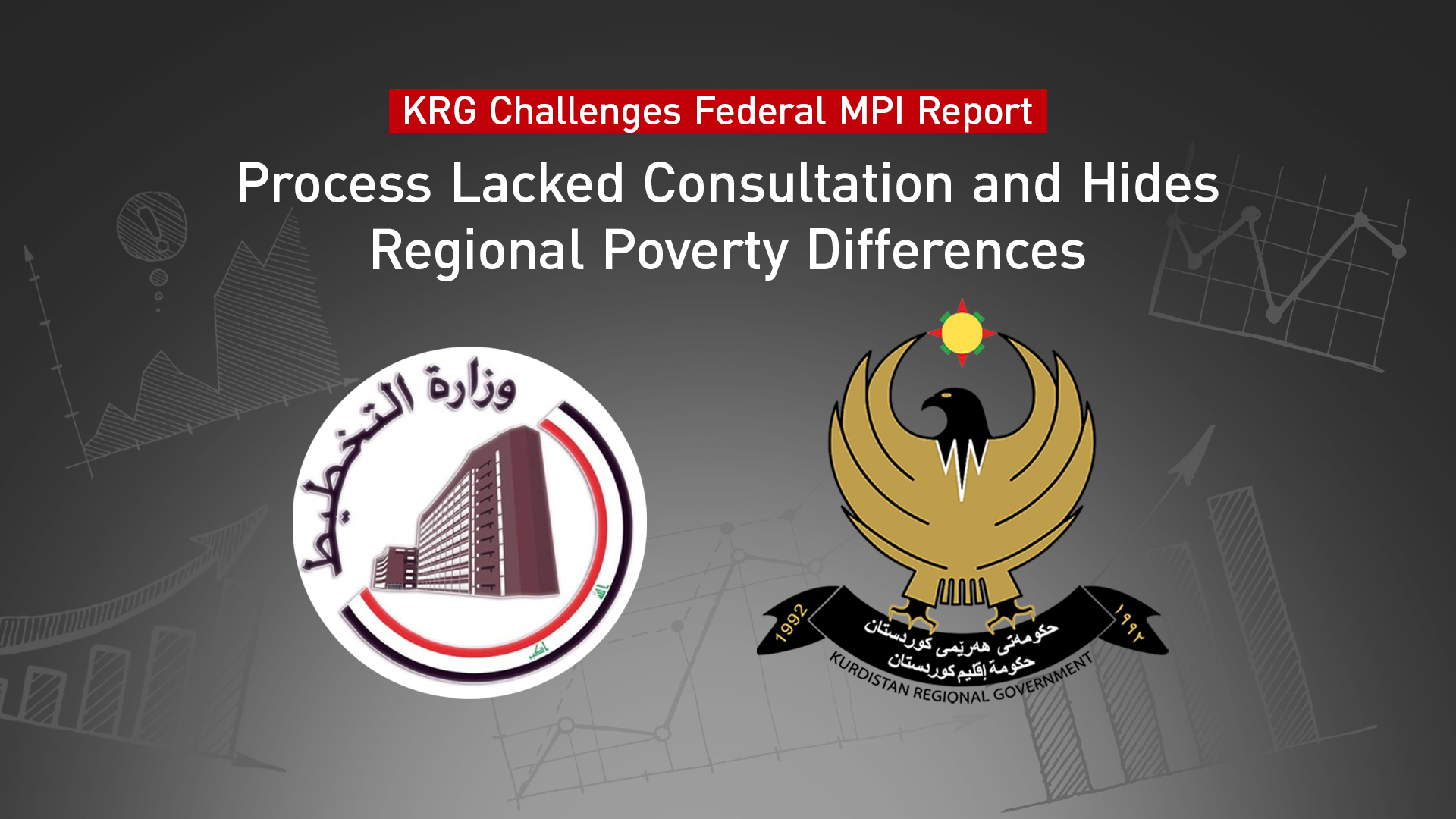Iraq's Poverty Report Controversy: KRG Says Data Published Without Consent
The KRG has protested its exclusion from a new national poverty report, highlighting a stark statistical gap: 8.6% material poverty in the Kurdistan Region versus 19.3% in federal Iraq.

ERBIL (Kurdistan24) – The Kurdistan Regional Government’s (KRG) Ministry of Planning has issued a formal protest following the federal government's launch of a major national poverty report, stating that its key institutions were excluded from the final process and highlighting significant statistical discrepancies that were masked by the national average presented in Baghdad.
The sharp rebuke came immediately after Iraq’s Federal Ministry of Planning, in partnership with the United Nations, announced the results of the "Iraq Multidimensional Poverty Index (MPI) analytical report" at a press conference on Wednesday.
In a direct statement, the KRG’s Ministry of Planning asserted that the pivotal report "was organized without the knowledge of the Kurdistan Region's Ministry of Planning and the Kurdistan Region Statistics Office." The ministry argued that the report should have been a joint effort to incorporate the KRG's views and that it should have received a final draft for approval before the public announcement. "From the outset, this report and its details should have been worked on jointly," the statement read.
Central to the KRG’s protest is the presentation of the poverty data.
While the federal report announced a national Multidimensional Poverty Index (MPI) of 10.8%, the KRG ministry pointed to a significant disparity in the underlying material poverty figures from the same survey data. The KRG statement specified that the material poverty rate is 19.3% in federal Iraq, while it is less than half that in the Kurdistan Region, at 8.6%.
The public disagreement over process and statistics overshadowed the federal government’s announcement in Baghdad, which was framed as a major success. At the conference, Iraqi Minister of Planning Dr. Muhammed Tamim hailed the report as a "policy tool" and celebrated the overall reduction in poverty, including a drop in the national MPI from 11.4% in 2018 to 10.8% in 2024.
The federal report, prepared in partnership with the United Nations Development Programme (UNDP) and the Oxford Poverty and Human Development Initiative (OPHI), was based on the 2023–2024 Iraq Household Socio-Economic Survey. International partners praised the initiative, with UNDP Deputy Resident Representative Sascha Graumann noting that while progress has been made, governorates like Muthanna, Missan, and Salah al-Din still face high levels of deprivation.
Although there was some acknowledgment of the Kurdistan Region's contribution within the published report, it notably came from international partners rather than the federal authorities.
Professor Sabina Alkire, Director of OPHI, praised the collaboration by explicitly highlighting the role of the "Kurdistan Regional Statistics Office" as one of the "skilled, competent, innovative, and dedicated teams that made this possible." However, this recognition was offered by the UNDP-affiliated expert, not by Iraq's Federal Ministry of Planning, which briefly acknowledged the KRG’s Statistics Office without mentioning the KRG's Ministry of Planning—underscoring the concerns raised by the Kurdistan Regional Government regarding exclusion and lack of transparency.
The KRG ministry’s statement confirmed its familiarity with the Oxford methodology and the survey data, underscoring that its objection was not with the data itself but with the lack of partnership in the report's finalization and a presentation that it feels obscures the true poverty landscape across the different parts of Iraq.
The announcement by Iraq's Ministry of Planning comes as the Iraqi Ministry of Labor has acknowledged that the exact unemployment rate in the country is not known. The ministry attributes this uncertainty to the large number of young people graduating from universities and institutes annually, combined with very rapid population growth.
Meanwhile, the on-the-ground reality for many citizens in central and southern Iraq contrasts with the ministry’s report.
For several weeks, residents in the southern and central provinces of Iraq have been holding protests against the persistent lack of essential services and unemployment. Lack of basic services such as clean water and reliable electricity has long been an enduring reality for many Iraqis. During these demonstrations, which have at times resulted in tensions and clashes, citizens have called on the federal government to resolve their pressing issues.
